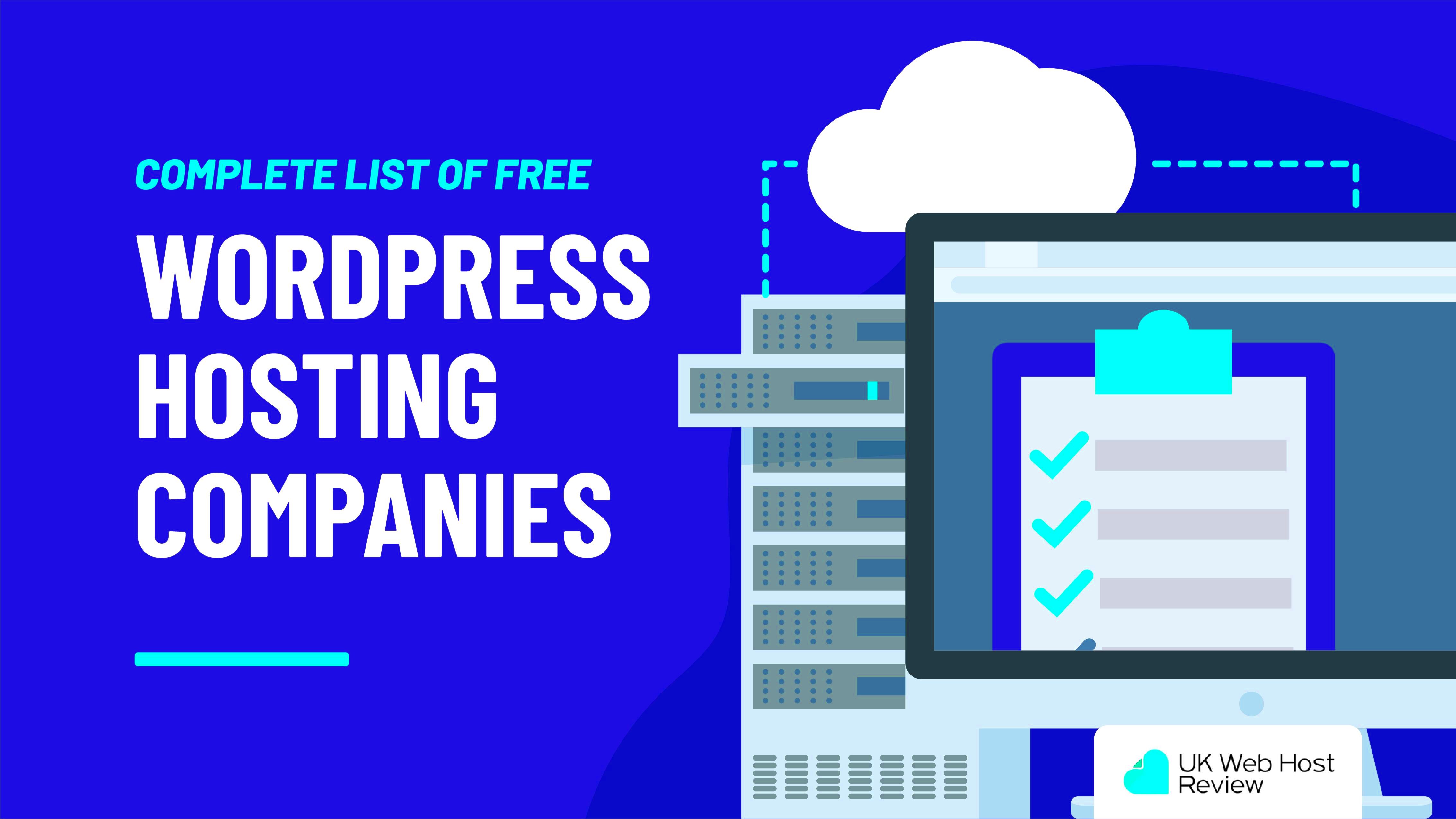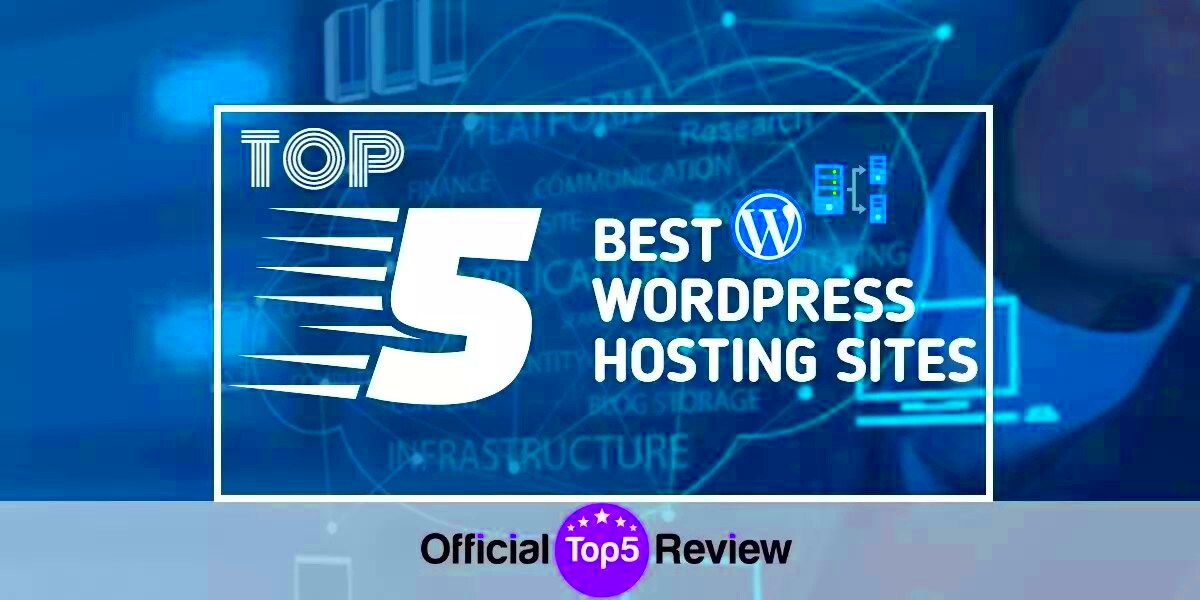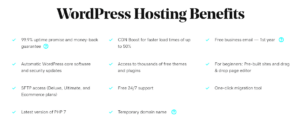When it comes to setting up your WordPress blog or e-commerce store, choosing the right hosting site can make all the difference. Not only does a reliable hosting provider keep your site running smoothly, but it also impacts your site’s speed, security, and overall success. With so many options available, how do you sift through the noise to find the best hosting site for your needs? In this guide, we’ll dive into the crucial factors to consider when selecting your perfect hosting partner and explore some top contenders in the hosting arena. Let’s get started!
Factors to Consider When Choosing a Hosting Site

Choosing a hosting site that fits your WordPress blog or e-commerce needs can feel overwhelming with so many choices out there. However, focusing on a few key factors can help clarify your decision-making process. Here’s what to keep in mind:
- Performance and Uptime: Look for hosts that guarantee at least 99.9% uptime. A reliable host means your site is accessible to visitors anytime.
- Speed: Loading times can impact user experience and SEO rankings. Choose a hosting provider that offers fast servers and content delivery networks (CDNs).
- Security: Look for features like SSL certificates, malware scanning, and regular backups to protect your site from cyber threats.
- Customer Support: Round-the-clock support via chat, phone, or email can be a lifesaver when you run into issues.
- Scalability: Your hosting provider should allow you to easily upgrade your plan as your blog or e-commerce site grows.
- Cost: While budget matters, consider the value you’re getting. Sometimes, paying a bit more for quality service is worth it.
By evaluating these factors, you’ll be better equipped to find the hosting site that aligns perfectly with your blogging or e-commerce objectives!
Top Hosting Sites for WordPress Blogs
When it comes to hosting your WordPress blog, choosing the right hosting site can make a world of difference. A good hosting provider ensures that your blog runs smoothly, loads quickly, and provides ample support when you need it the most. Here’s a breakdown of some of the top hosting sites that cater specifically to WordPress blogs:
- Bluehost – Recommended officially by WordPress, Bluehost offers a user-friendly interface, robust performance, and excellent customer support. They provide one-click WordPress installs, making it super easy for beginners.
- SiteGround – Known for its stellar customer support, SiteGround boasts fast loading speeds and strong uptime. It comes with automatic updates and daily backups, which is a major plus for bloggers.
- WP Engine – If you’re looking for managed WordPress hosting, WP Engine is a great choice. They handle all technical aspects, allowing you to focus more on content creation than on maintenance.
- DreamHost – DreamHost provides a variety of hosting options tailored for WordPress. They offer a 97-day money-back guarantee and boast excellent customer service along with a great uptime record.
- A2 Hosting – Known for its speed, A2 Hosting provides optimized WordPress hosting plans that make your blog load faster. They also have a turbo boost option for even better performance.
These hosting sites not only offer the required features for a successful WordPress blog but also provide scalable options as your blog grows. Remember to consider your specific needs, budget, and target audience when making your choice!
Top Hosting Sites for E-commerce Websites
Launching an e-commerce website? It’s crucial to select a hosting site that can handle high traffic, ensure security, and deliver excellent performance. Here are some of the best hosting platforms specifically designed for e-commerce:
- Shopify – Shopify is specifically built for e-commerce and offers an all-in-one platform, including hosting. With customizable themes and robust payment integration, it’s perfect for beginners and seasoned sellers.
- BigCommerce – Similar to Shopify, BigCommerce provides a full-fledged platform for setting up online stores. It’s packed with features that support scaling businesses and offers great SEO tools to attract traffic.
- WooCommerce on Bluehost – If you prefer a WordPress environment, pairing WooCommerce with Bluehost is a fantastic choice. It combines the flexibility of WordPress with the e-commerce functionality that WooCommerce offers.
- SiteGround – SiteGround also shines in the e-commerce arena with fast servers, SSL certificates for security, and a dedicated support team that can help resolve any issues promptly.
- HostGator – With affordable plans, HostGator is a great starting point for small to medium-sized e-commerce sites. They offer easy integration with a variety of e-commerce platforms, ensuring flexibility.
Choosing the right hosting provider for your e-commerce business can significantly impact both your customer experience and your bottom line. Make sure to evaluate your needs and choose a hosting site that can grow alongside your business!
Comparing Pricing and Features
When it comes to hosting your WordPress blog or e-commerce site, pricing and features play a pivotal role in your decision-making process. Choosing the right hosting provider requires a careful analysis of what each plan offers versus the price you’ll pay. Let’s break it down!
Most hosting providers offer a range of plans—typically from basic shared hosting to advanced dedicated servers. Here’s a quick overview of what you might expect:
| Hosting Type | Price Range (per month) | Key Features |
|---|---|---|
| Shared Hosting | $3 – $10 | Basic storage and bandwidth, ideal for beginners. |
| Managed WordPress Hosting | $15 – $50 | Optimized for WordPress with automatic updates and backups. |
| VPS Hosting | $20 – $100 | More resources, flexibility, and control over your environment. |
| Dedicated Hosting | $80 – $300+ | Complete control and resources dedicated solely to your site. |
While price is undoubtedly important, also examine the following:
- Storage Limitations: Ensure the storage offered aligns with your needs.
- Bandwidth: Look for unlimited or ample bandwidth to handle traffic surges.
- SSL Certificate: Security is key; many hosts now include a free SSL.
- Customer Support: 24/7 support is crucial for resolving issues quickly.
Lastly, don’t forget to check for any hidden fees, especially upon renewal. It’s always good to read the fine print so you’re not caught off-guard!
Performance and Uptime Reliability
Now that you have a grasp on pricing and features, let’s delve into perhaps the most crucial aspect of hosting: performance and uptime reliability. These factors can make or break your online presence, especially if you’re running an e-commerce site where every second counts!
The performance of your hosting can be broken down into two primary metrics: speed and uptime.
Speed: A slower website can frustrate users and drive them away. Most studies suggest that a page load time of under 3 seconds is ideal. Here are a few elements that impact speed:
- Server Location: Choose a host with servers close to your target audience.
- Content Delivery Network (CDN): A CDN helps deliver your site’s content more quickly to users around the world.
- Resource Allocation: Shared hosting may lead to slower speeds if resources are limited.
Uptime Reliability: This refers to the percentage of time your site is operational and accessible. Ideally, you want a host that guarantees at least 99.9% uptime. Here’s why it matters:
- Trustworthiness: Frequent downtime can damage your brand’s reputation.
- Sales Impact: For e-commerce sites, downtime can lead to lost sales and customer trust.
- SEO Ranking: Search engines may penalize websites that are often down.
Before committing to a hosting service, make sure to check reviews and uptime statistics. This way, you can ensure that you’re making a strong, informed choice for your WordPress blog or e-commerce site.
7. Customer Support and Resources
When it comes to hosting your WordPress blog or e-commerce site, customer support can make or break your experience. You might have stellar performance or an amazing set of features, but if you can’t get help when you need it, those advantages mean very little. So, let’s chat about what to look for in customer support and resources.
A solid hosting provider should offer multiple support channels. Here’s a quick rundown of what to consider:
- Live Chat: Instant assistance can solve issues on-the-spot and keep your website running smoothly.
- Email Support: For less urgent queries, a responsive email support team can be invaluable.
- Phone Support: Sometimes, talking to a real person is what you need. Check if they have this option.
- Knowledge Base: A well-organized collection of FAQs, tutorials, and guides can empower you to solve many problems on your own.
- Community Forums: Engaging with a community of users who may have faced similar issues can provide additional insights and solutions.
Moreover, consider the availability of resources like:
- Video Tutorials: Visual learners benefit from step-by-step guides.
- Webinars: These sessions can cover deeper aspects of hosting and website management.
- Blog or Articles: Regular content updates keep you informed about best practices and new features.
The right combination of support and resources can give you peace of mind, knowing that help is just a click or a call away.
8. Conclusion
Choosing the best hosting site for your WordPress blog or e-commerce platform is a decision that shouldn’t be taken lightly. As we’ve explored throughout this blog, the right hosting provider can significantly influence your website’s performance, security, and user experience.
At the end of the day, assessing the features your site really needs, alongside considerations like cost, customer support, and scalability, will help you make a more informed decision. Here are a few key points to wrap up on:
- Identify Your Needs: Understand whether you need basic blog hosting or robust e-commerce solutions.
- Evaluate Features: Look for essential features like SSL certificates, build tools, and performance metrics.
- Testing Support: Don’t hesitate to reach out to customer support before signing up to gauge their responsiveness.
- Read Reviews: Online reviews can provide real-world insights into what hosting providers offer.
Remember, choosing a hosting provider is not just about the price or a single feature; it’s about the complete package that supports your online journey. With the right info in hand, you’ll be better equipped to select a hosting service that meets your unique needs.
So go ahead, take your time, do your research, and you’ll find the perfect fit to launch your amazing WordPress blog or e-commerce site!



